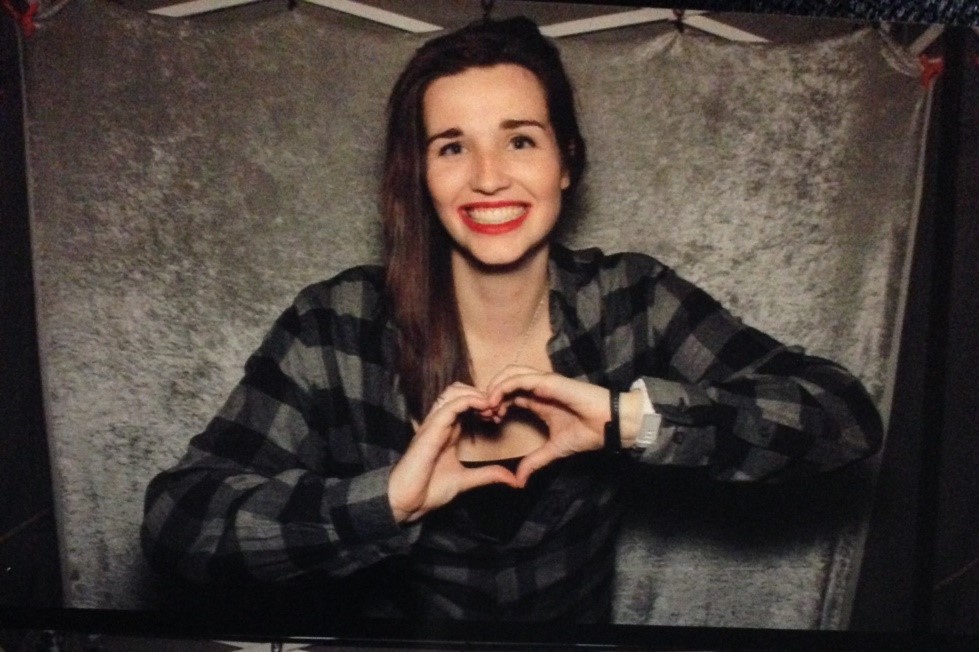
By GRACE McDOWELL
Staff Writer
Oh great, another one of my Facebook friends is engaged. Wait, when did that couple get married? Wow, she’s in a relationship again? You may have had these thoughts when scrolling through your news feed from time to time and finding that many of your classmates are engaged, married or even just in a nauseously cute romantic relationship.

When asking a few singles at McKendree how they feel when coming across these instances, the answers were quite mixed. Lauren Apetz, ’16, says it makes her sad because she is ready to be engaged and married. Jacob Schlote, ’16, says seeing couples become engaged or married doesn’t bother him because he has no feelings about it. Kaylyn Ruiz, ’19, comments, “I feel happy for them! I love ‘love.’ I think it’s great if you are lucky enough to find the person you want to spend the rest of your life with at a young age.”
With all of this apparent love in the air, it may be surprising to find that, according to Gallup poll, as of 2014, 64 percent of American millennials between the ages of 18 to 29 years old are single and not in committed relationships. Compare this to 2004, when only 52 percent of this age range identified themselves as single. Contrary to your Facebook feed, the majority of twenties are single. So, what happened? Why is being single in your twenties more popular than ever?
Ally Deiters, ’17, believes it is because singles in their twenties are more focused on a career. She adds, “More people want to travel, meet new people and be able to ‘do life’ the way they want to, not having to have someone by their side 24/7.” Before settling down, maybe twenty-somethings want to experience the world in an independent light or focus on becoming successful in their career.
Apetz has a different perspective on why more twenties are staying single. “Our culture has changed to become more of a hook-up culture compared to what it was. People don’t want to settle down almost until their 30s.” Her view is that more singles would rather stay single longer, have fun and not be tied down to any certain individual. Whatever the reason, the facts stay the same. In 10 years, the number of single adults aged 18-29 has risen by 12 percent.
It’s possible that the positive aspects of being single are often overlooked, and there are many benefits to staying single in your twenties. Recent graduate, Taylor Cope, addresses one of these benefits: “The biggest advantage for me was that I had the freedom to live wherever I wanted without feeling pressured to get a job and live close to a boyfriend. If I was in a relationship, I would want to live close by so that we could continue to grow and not have to travel so much to visit each other.” She also notes that being single has saved her a couple hundred dollars by not buying a Christmas or Valentine’s Day gift for a significant other.
As college students, we know it is vital to save money wherever you can. Kaylyn Ruiz, ’19, says that being single allows her to focus on herself more. “You don’t have to worry about someone else. When you’re in a relationship, you have to think about another human being. Sometimes it’s nice to just think about yourself.” Choosing a home for your career without following someone else, saving some dough and not having added worries about another person: suddenly, staying single doesn’t seem so sad.
Being single is not always thought of as happy or fulfilling. In fact, staying single comes with a lot of stigmas and stereotypes. Ruiz states that a couple of stigmas are that people think you are crazy or picky, and that is why you remain single. Apetz thinks single women are often labeled as crazy cat ladies. Cecily May, ’18, adds, “People think you’re probably ugly or dumb, and that’s why you’re single.” It does not take much time to realize that these stigmas are usually untrue. Sure, there are some cases of living alone in a fur covered house with seventy felines. However, most of the time, this is not the case. It is not uncommon to choose to stay single or learn to be content, even in your singleness.
Along with the stereotypes come the hurtful comments. My personal least favorite is, “How are you still single?” Deiters hates hearing, “Aren’t you lonely? Don’t you want someone that you can be with forever?” May says that she does not like going home on holidays to hear her family asking if she has a boyfriend yet. Those comments do not bother Cope as much, however. She says, “The thing I hate to hear isn’t ‘do you have a boyfriend,’ but instead ‘you should date this person,’ or ‘I know this person who is single, so you should look into that.’ I feel like there is so much pressure to find the perfect one for me right now, but really I’m quite happy focusing on bettering my life so that when the right guy does come around, I am the best me I can be.”
Be careful at choosing your words when questioning a single person. Perhaps the most ridiculous response you could say when someone mentions they are single is, “Oh, I’m sorry.” Trust me, as a single girl in her twenties, that you have nothing to apologize to me for! Because, not every single person feels like being single, a terrible illness to overcome.
Schlote enjoys being single for now. “I can do whatever I want and not have to report to anyone but myself. Sometimes it gets lonely, but you concentrate on finding what you want to attract in a mate when you get older while also having a lot of fun with no strings attached in the meantime.”

My advice on the subject is to enjoy your independence. Being in your twenties is already stressful enough with worries of college, money and finding a career. Don’t be sad about being alone. Instead, use that energy to devote yourself to what is most important in your life. Learning to be content on your own is better than consenting to being with the wrong person.
However, there is no need to use this time to focus only on you. Focus on others. By focusing on others, you will improve yourself. If that day comes when you get to boast about your engagement pictures on Facebook to the rest of the world, be thankful for the path that led you to this. And know that by using your single years to improve yourself, you have made strides to become the best person you can be for your possible mate.